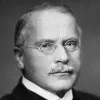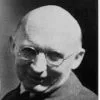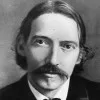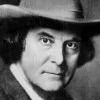Madame de Tencin said that intelligent people often erred in their conduct because they could never believe that the world in general is as stupid as it is.
[Mme de Tencin disait que les gens d’esprit faisaient beaucoup de fautes en conduite, parce qu’ils ne croyaient jamais le monde assez bête, aussi bête qu’il l’est.]
Nicolas Chamfort (1741-1794) French writer, epigrammist (b. Nicolas-Sébastien Roch)
Products of Perfected Civilization [Produits de la Civilisation Perfectionnée], Part 2 “Characters and Anecdotes [Caractères et Anecdotes],” ¶ 715 (1795) [tr. Merwin (1969)]
(Source)
(Source (French)). Alternate translations:Mme de Tencin said that people with spirit make many mistakes in their actions because they never believe that society is brutish enough, as brutish as it is.
[tr. Siniscalchi (1994)]Madame de Tencin said that many very clever people made social blunders because they could never believe that society was quite as stupid as it really was.
[tr. Parmée (2003), ¶382]The great mistake made by intelligent people is to refuse to believe that the world is as stupid as it is.
[Forbes]
Quotations about:
mistake
Note not all quotations have been tagged, so Search may find additional quotes on this topic.
For the robust, an error is information; for the fragile, an error is an error.
Nassim Nicholas Taleb (b. 1960) Lebanese-American essayist, statistician, risk analyst, aphorist
The Bed of Procrustes: Philosophical and Practical Aphorisms, “Robustness and Antifragility” (2010)
(Source)
I hope you’ll make mistakes. If you make mistakes, it means you’re out there doing something. And the mistakes in themselves can be very useful. I once misspelled Caroline, in a letter, transposing the As and the O, and I thought, “Coraline looks almost like a real name…”
Neil Gaiman (b. 1960) British author, screenwriter, fabulist
Speech (2012-05-17), Commencement, University of the Arts, Philadelphia [09:17]
(Source)
Mistakes are, after all, the foundation of truth, and if a man does not know what a thing is, it is at least an increase in knowledge if he knows what it is not.
Every great mistake has a halfway moment, a split second when it can be recalled and perhaps remedied.
Pearl S. Buck (1892-1973) American writer
What America Means to Me, ch. 10 (1942)
(Source)
Critiquing lack of American policy in Asia, not just to defeat Japan, but to bring freedom to the people of China and India.
And remember, we all stumble, every one of us. That’s why it’s a comfort to go hand in hand.
Emily Kimbrough (1899-1989) American author and journalist
The Innocents from Indiana, ch. 17 (1950)
(Source)
At the very end of the book, a note from the protagonist's mother, about the protagonist having failed the entrance examination to Bryn Mawr.
ANNA: Well, people change, and forget to tell each other. Too bad — causes so many mistakes.
Lillian Hellman (1905-1984) American playwright, screenwriter
Toys in the Attic, Act 3 (1959)
(Source)
Usually one’s cooking is better than one thinks it is. And if the food is truly vile, as my ersatz eggs Florentine surely were, then the cook must simply grit her teeth and bear it with a smile — and learn from her mistakes.
Julia Child (1912-2004) American chef and writer
My Life In France, “Le Cordon Bleu,” sec. 2 (2006)
(Source)
Do not persist in folly. Some make a duty of failure and having started down the wrong road, think it a badge of character to continue.
[No proseguir la necedad. Hacen algunos empeño del desacierto, y porque comenzaron a errar, les parece que es constancia el proseguir.]
Baltasar Gracián y Morales (1601-1658) Spanish Jesuit priest, writer, philosopher
The Art of Worldly Wisdom [Oráculo Manual y Arte de Prudencia], § 261 (1647) [tr. Fischer (1937)]
(Source)
(Source (Spanish)). Alternate translations:Not to continue a Foppery. Some make an engagement of their mistakes: when they have once begun to fail, they think they are concerned in honour to continue.
[Flesher ed. (1685)]Do not follow up a Folly. Many make an obligation out of a blunder, and because they have entered the wrong path thinks it proves their strength of character to go in it.
[tr. Jacobs (1892)]Don’t persist in folly. Some people commit themselves to their errors. They act mistakenly and consider it constancy to go on that way.
[tr. Maurer (1992)]
The greatest of sages can commit one mistake, but not two; he may fall into error, but he doesn’t lie down and make his home there.
[En un descuido puede caer el mayor sabio, pero en dos no; y de paso, que no de asiento.]
Baltasar Gracián y Morales (1601-1658) Spanish Jesuit priest, writer, philosopher
The Art of Worldly Wisdom [Oráculo Manual y Arte de Prudencia], § 214 (1647) [tr. Maurer (1992)]
(Source)
(Source (Spanish)). Alternate translations:The wisest man may very well fail once, but not twice; transiently, and by inadvertency, but not deliberately.
[Flesher ed. (1685)]A wise man may make one slip but never two, and that only in running, not while standing still.
[tr. Jacobs (1892)]The wisest of men may slip once, but not twice, and that only by chance, and not by design.
[tr. Fischer (1937)]
There’s a reason narcissists don’t learn from mistakes and that’s because they never get past the first step, which is admitting that they made one.
Robert Hogan (b. 1937) American psychologist
In Jeffrey Kluger, The Narcissist Next Door, ch. 6 (2014)
(Source)
The interest of the people as a whole [lies] in being able to join organizations, advocate causes, and make political “mistakes” without later being subjected to governmental penalties for having dared to think for themselves.
Hugo Black (1886-1971) American politician and jurist, US Supreme Court Justice (1937-71)
Barenblatt v. United States, 360 U.S. 109, 144 (1959) [dissent]
(Source)
Experience is the name every one gives to their mistakes.
Oscar Wilde (1854-1900) Irish poet, wit, dramatist
Lady Windermere’s Fan, Act 3 [Mr. Dumby] (1892)
(Source)
Also in Wilde's The Picture of Dorian Gray, ch. 4 (1890):Experience was of no ethical value. It was merely the name men gave to their mistakes.
It is only an error in judgment to make a mistake, but it argues an infirmity of character to stick to it.
Adela Rogers St. Johns (1894-1988) American journalist, novelist, screenwriter.
Some Are Born Great (1974)
(Source)
I hope that in this year to come, you make mistakes.
Because if you are making mistakes, then you are making new things, trying new things, learning, living, pushing yourself, changing yourself, changing your world. You’re doing things you’ve never done before, and more importantly, you’re Doing Something.
So that’s my wish for you, and all of us, and my wish for myself. Make New Mistakes. Make glorious, amazing mistakes. Make mistakes nobody’s ever made before. Don’t freeze, don’t stop, don’t worry that it isn’t good enough, or it isn’t perfect, whatever it is: art, or love, or work or family or life.
Whatever it is you’re scared of doing, Do it.
Make your mistakes, next year and forever.Neil Gaiman (b. 1960) British author, screenwriter, fabulist
Blog entry (2011-12-31), “My New Year Wish”
(Source)
The mistakes I made from weakness do not embarrass me nearly so much as those I made insisting on my strength.
James Richardson (b. 1950) American poet
“Vectors: 56 Aphorisms and Ten-second Essays,” Michigan Quarterly Review, #27 (Spring 1999)
(Source)
It is only an error of judgment to make a mistake, but it argues an infirmity of character to adhere to it when discovered.
Christian Nestell Bovee (1820-1904) American epigrammatist, writer, publisher
Intuitions and Summaries of Thought, Vol. 2 (1862)
(Source)
Our errors are surely not such awfully solemn things. In a world where we are so certain to incur them in spite of all our caution, a certain lightness of heart seems healthier than this excessive nervousness on their behalf.
William James (1842-1910) American psychologist and philosopher
“The Will to Believe,” sec. 7, New World (Jun 1896)
(Source)
Originally a lecture for the Philosophical Clubs of Yale and Brown Universities.
He [Napoleon III] was what I often think is a dangerous thing for a statesman to be — a student of history, and like most of those who study history, he learned from the mistakes of the past how to make new ones.
A. J. P. Taylor (1906-1990) British historian, journalist, broadcaster [Alan John Percivale Taylor]
“Mistaken Lessons from the Past,” The Listener (6 Jun 1963)
(Source)
Every man’s reason is, and must be, his guide; and I may as well expect that every man should be of my size and complexion, as that he should reason just as I do. Every man seeks for truth; but God only knows who has found it. It is, therefore, as unjust to persecute as it is absurd to ridicule people for those several opinions which they cannot help entertaining upon the conviction of their reason.
Lord Chesterfield (1694-1773) English statesman, wit [Philip Dormer Stanhope]
Letter to his son, #126 (21 Sep 1747)
(Source)
Speaking of religious beliefs.
Genius is what you do with the mistakes.
Michael Moriarty (b. 1941) American-Canadian actor, musician
In Amy Wallace, “The Survivor,” New Yorker (26 Jan 2004)
(Source)
Referring to his work with film producer Larry Cohen. Full quote: "It was skin-of-your-teeth filmmaking. Larry tends occasionally not to look ahead. But genius is what you do with the mistakes, and nobody was better with mistakes than Larry Cohen."
What inconceivable madness! For it is not enough to call an opinion “foolishness” when it is utterly devoid of reason.
[O delirationem incredibilem! non enim omnis error stultitia dicenda est.]
Marcus Tullius Cicero (106-43 BC) Roman orator, statesman, philosopher
De Divinatione [On Divination], Book 2, ch. 43 (2.43) / sec. 90 (44 BC) [tr. Falconer (1923)]
(Source)
The pain others give passes away in their later kindness, but that of our own blunders, especially when they hurt our vanity, never passes away.
William Butler Yeats (1865-1939) Irish poet and dramatist
Journal entry #105 (18 Mar 1909)
(Source)
See also "Vacillation."
Back of every mistaken venture and defeat is the laughter of wisdom, if you listen. We go forward by failure. Every blunder behind us is giving a cheer for us and only those who are willing to fail shall taste the dangers and splendors of life. To be a good loser is to learn how to win. The real coward is he who sees no glory in failure.
Which is it? Is man one of God’s blunders? Or is God one of man’s blunders?
[Wie? ist der Mensch nur ein Fehlgriff Gottes? Oder Gott nur ein Fehlgriff des Menschen?]
Friedrich Nietzsche (1844-1900) German philosopher and poet
Twilight of the Idols [Die Götzen-Dämmerung], “Apophthegms and Darts [Sprüche und Pfeile]” #7 (1889)
Alt. trans.:
- "How is it? Is man only a mistake of God? Or God only a mistake of man? --" [tr. Common (1896)]
- "What? Is man just one of God's mistakes? Or is God just one of man's? --" [tr. Large (1998),"Maxims and Barbs"]
- "What? Is man just God's mistake? Or is God just man's mistake?" [tr. Norman (2005), "Arrows and Epigrams"]
- "What? Is man merely a mistake of God's? Or God merely a mistake of man's?" [tr. Hollingdale (1968)]
- "Which is it? Is man only a blunder of God? Or is God only a blunder of man?" [tr. Ludovici (1911), "Maxims and Missiles"]
DEXTER: I’d rather do something and make a mistake, than be frightened into doing nothing. That’s the problem back home. Folks have been conned into thinking they can’t change the world. Have to accept what is. I’ll tell you something, my friends, the world is changing every day. The only question is, who’s doing it?
J. Michael (Joe) Straczynski (b. 1954) American screenwriter, producer, author [a/k/a "JMS"]
Babylon 5, 3×20 “And the Rock Cried Out, No Hiding Place” (14 Oct 1996)
See Straczynski.
His view of war — and he had seen a great deal of it — was that a general made as many blunders as he fought battles, but, by the grace of the gods, the opposing generals’ blunders were sometimes worse.
Aubrey Menen (1912-1989) British writer, novelist, satirist, theatre critic
A Conspiracy of Women (1966)
(Source)
See Tartakower.
A candid admission of a blunder is refreshing and not often heard in human affairs. It is the saint alone who is large-minded enough to think and speak in this way. This is part of his authenticity.
Thomas Dubay (1921-2020) American Catholic priest, author, spiritual director
Authenticity: A Biblical Theology of Discernment, Part 2, ch. 6 (1977)
(Source)
For nothing stands out so conspicuously, or remains so firmly fixed in the memory, as something in which you have blundered.
[Nihil est enim tam insigne, nec tam ad diuturnitatem memoriae stabile, quam id, in quo aliquid offenderis.]
Marcus Tullius Cicero (106-43 BC) Roman orator, statesman, philosopher
De Oratore [On the Orator, On Oratory], Book 1, ch. 28 (1.28) / sec. 129 (55 BC) [tr. Sutton/Rackham (1940)]
(Source)
(Source (Latin)). Alternate translations:For nothing makes so remarkable, so deep an impression upon the memory as a miscarriage.
[tr. Guthrie (1755)]For nothing makes so remarkable, so deep an impression upon the memory as a defect.
[Source (1808)]Nothing, indeed, is so much noticed, or makes an impression of such lasting continuance on the memory, as that in which you give any sort of offense.
[tr. Watson (1860)]For nothing so immediately attracts attention, or clings so tenaciously to the memory, as any defect.
[tr. Calvert (1870)]For nothing, we know, strikes us so forcibly or makes such an indelible impression on the memory as that which somehow offends our taste.
[tr. Moor (1892)]Nothing attracts so much attention, or retains such a hold upon men's memories, as the occasion when you have made a mistake.
[ed. Harbottle (1906)]For nothing is so conspicuous or so indelibly imprinted on the memory as something that annoys you in any way.
[tr. May/Wisse (2001)]
A successful career has been full of great blunders.
Charles Buxton (1823-1871) English brewer, philanthropist, writer, politician
Notes of Thought, #482 (1873)
(Source)
For there is no gardening without humility, an assiduous willingness to learn, and a cheerful readiness to confess you were mistaken. Nature is continually sending even its oldest scholars to the bottom of the class for some egregious blunder. But, by the due exercise of patience and diligence, they may work their way to the top again.
Alfred Austin (1835-1913) English poet, UK Poet Laureate (1896-1913)
The Garden That I Love, “April 30th” (1894)
(Source)
Brooding over blunders is the biggest blunder.
Muhammad Ali (1942-2016) American boxer, activist [b. Cassius Clay]
“What I’ve Learned,” Esquire (Jan 2004)
(Source)
It takes a lot of things to prove you are smart, but only one thing to prove you are ignorant.
Many journalists have fallen for the conspiracy theory of government. I do assure you that they would produce more accurate work if they adhered to the cock-up theory.
Bernard Ingham (b. 1932) British journalist, civil servant, press secretary
Quoted in The Observer (17 Mar 1985)
Often paraphrased, "Cock-up before conspiracy." Cf. Hanlon.
Success don’t konsist in never making blunders, but in never making the same one the seckond time.
[Success doesn’t consist in never making blunders, but in never making the same one the second time.]
Remember, too, that you have the right to make mistakes. Exercise it. Good judgment comes from experience, and often experience comes from bad judgment.
Rita Mae Brown (b. 1944) American author, playwright
Starting from Scratch, Part 4 (1988)
(Source)
Brown popularized the phrase, but it had been expressed before. More information: Good Judgment Depends Mostly on Experience and Experience Usually Comes from Poor Judgment – Quote Investigator.
HAL9000: The 9000 series is the most reliable computer ever made. No 9000 computer has ever made a mistake or distorted information. We are all, by any practical definition of the words, foolproof and incapable of error.
But, on the other hand, Uncle Abner said that the person that had took a bull by the tail once had learnt sixty or seventy times as much as a person that hadn’t, and said a person that started in to carry a cat home by the tail was gitting knowledge that was always going to be useful to him, and warn’t ever going to grow dim or doubtful.
Mark Twain (1835-1910) American writer [pseud. of Samuel Clemens]
Tom Sawyer Abroad, ch. 10 (1894)
(Source)
Frequently misquoted as "A man who carries a cat by the tail learns something he can learn in no other way."
Science, my lad, has been built upon many errors; but they are errors which it was good to fall into, for they led to the truth.
[La science, mon garçon, est faite d’erreurs, mais d’erreurs qu’il est bon de commettre, car elles mènent peu à peu à la vérité.]
Jules Verne (1828-1905) French novelist, poet, playwright
Journey to the Center of the Earth, ch. 31 (1864) [tr. Malleson (1877)]
(Source)
Alt. trans.: "Science, my lad, is made up of mistakes, but they are mistakes which it is useful to make, because they lead little by little to the truth."
That’s not a nuts thing, that’s a “humans hate to admit error even as they stand there, black and smoldering, with the stub of a cigarette in one hand, in the middle of a wide crater containing them and the remains of a sign that once read ‘DANGER: VOLATILE EXPLOSIVES'” thing. It’s pretty universal.
James Nicoll (b. 1961) Canadian reviewer, editor
“Proposal for a new FAQ or two,” rec.arts.sf.written, Usenet (10 Jun 2005)
(Source)
Stupidity is the same as evil if you judge by the results.
Margaret Atwood (b. 1939) Canadian writer, literary critic, environmental activist
Surfacing, ch. 3 (1972)
(Source)
If you leap into a Well, Providence is not bound to fetch you out.
Thomas Fuller (1654-1734) English physician, preacher, aphorist, writer
Gnomologia: Adages and Proverbs (compiler), # 2795 (1732)
(Source)
If the first button of one’s coat is wrongly buttoned, all the rest will be crooked.
Giordano Bruno (1548-1600) Italian philosopher
(Attributed)
(Source)
Attributed in John Emerich & Edward Dalberg, The Cambridge Modern History (1904).
There is no error so monstrous that it fails to find defenders among the ablest men. Imagine a congress of eminent celebrities, such as More, Bacon, Grotius, Pascal, Cromwell, Bossuet, Montesquieu, Jefferson, Napoleon, Pitt, etc. The result would be an Encyclopedia of Error.
He who imagines he can do without the world, deceives himself much: but he who fancies the world cannot do without him, is under a far greater deception.
[Celui qui croit pouvoir trouver en soi-même de quoi se passer de tout le monde se trompe fort; mais celui qui croit qu’on ne peut se passer de lui se trompe encore davantage.]François VI, duc de La Rochefoucauld (1613-1680) French epigrammatist, memoirist, noble
Réflexions ou sentences et maximes morales [Reflections; or Sentences and Moral Maxims], ¶201 (1665-1678) [ed. Carvill (1835), ¶81]
(Source)
Appeared in the 1st ed. (1665). In manuscript, the first part "Celui qui croit pouvoir trouver en soi-même de quoi se passer de tout le monde" reads "Celui qui croit pouvoir se passer de tout le monde" ("He who believes that he can find in himself enough to do without everyone" reads "He who believes he can do without everyone.").
(Source (French)). Alternate translations:He that fansies such a sufficiency in himself, that he can live without all the World, is mightily mistaken; but he that imagines himself so necessary, that other people cannot live without him, is a great deal more mistaken.
[tr. Stanhope (1694), ¶202]He who imagines he can do without the world deceives himself much; but he who fancies the world cannot do without him is still more mistaken.
[pub. Donaldson (1783), ¶93; ed. Lepoittevin-Lacroix (1797), ¶192]He who thinks he can find in himself the means of doing without others is much mistaken; but he who thinks that others cannot do without him is still more mistaken.
[ed. Gowens (1851), ¶210]He who thinks he has the power to content the world greatly deceives himself, but he who thinks that the world cannot be content with him deceives himself yet more.
[tr. Bund/Friswell (1871), ¶201]The man who thinks he can do without the world errs; but the man who thinks the world can [sic] do without him is in still greater error.
[tr. Heard (1917), ¶206]It is a great mistake for a man to suppose that he can dispense with the world; but it is a much greater one to suppose that the world cannot dispense with him.
[tr. Stevens (1939), ¶201]A man who believes that his inner resources are such that he can dispense with his fellow-men is committing a serious mistake: it is not, however, so serious as that of the man who believes himself indispensable to others.
[tr. FitzGibbon (1957), ¶201]The man who thinks he can do without the world is indeed mistaken; but the man who thinks the world cannot do without him is mistaken even worse.
[tr. Kronenberger (1959), ¶201]The man who thinks he can find enough in himself to be able to dispense with everybody else makes a great mistake, but the man who thinks he is indispensable to others makes an even greater.
[tr. Tancock (1959), ¶201]He who believes that he can make do without any one else in the world, is very mistaken; but he who believes that nobody in the world could make do without him, deceives himself still more greatly.
[tr. Whichello (2016) ¶201]
Experience: The name every one gives to his mistakes.
Elbert Hubbard (1856-1915) American writer, businessman, philosopher
The Roycroft Dictionary (1914)
(Source)
Nobody talks much that does n’t say unwise things, — things he did not mean to say; as no person plays much without striking a false note sometimes. Talk, to me, is only spading up the ground for crops of thought. I can’t answer for what will turn up.
War is mainly a catalogue of blunders.
Winston Churchill (1874-1965) British statesman and author
The Second World War, Vol. 3: The Grand Alliance, ch. 20 “The Soviet Nemesis” (1950)
(Source)
Specifically, on the USSR failing to form an allied front in the Balkans against Hitler prior to his attack on them.
Constant effort and frequent mistakes are the stepping-stones of genius.
Elbert Hubbard (1856-1915) American writer, businessman, philosopher
Little Journeys to the Homes of the Great, Vol. 12: Little Journeys to the Homes of Great Scientists, “William Herschel” (1916)
(Source)
Failure: A man who has blundered but is not able to cash in on the experience.
Elbert Hubbard (1856-1915) American writer, businessman, philosopher
The Roycroft Dictionary (1914)
(Source)
DREAM: It is sometimes a mistake to climb; it is always a mistake never even to make the attempt.
Neil Gaiman (b. 1960) British author, screenwriter, fabulist
Sandman, Book 6. Fables and Reflections, Vertigo Preview, “Fear of Falling” (1992-12)
(Source)
“I beseech ye in the bowels of Christ, think that ye may be mistaken.” I should like to have that written over the portals of every church, every school, and every court house, and, may I say, of every legislative body in the United States. I should like to have every court begin, “I beseech ye in the bowels of Christ, think that we may be mistaken.”
Learned Hand (1872-1961) American jurist
Testimony, US Senate Committee on Labor and Public Welfare, Special Subcommittee on the Establishment of a Commission on Ethics in Government (1951-06-28)
(Source)
This was a favorite phrase of Hand's regarding his own judicial philosophy. Quoting Oliver Cromwell's letter to the General Assembly of the Church of Scotland (Aug 1650) before the Battle of Dunbar.
Collected as "Morals in Public Life" in Irving Dillard, ed., The Spirit of Liberty (1952).
Finish every day and be done with it. For manners and for wise living it is a vice to remember. You have done what you could; some blunders and absurdities no doubt crept in; forget them as soon as you can. Tomorrow is a new day; you shall begin it well and serenely, and with too high a spirit to be cumbered with your old nonsense.
Ralph Waldo Emerson (1803-1882) American essayist, lecturer, poet
Letter to one of his daughters
(Source)
The greatest follies, like the stoutest ropes, are often composed of a multitude of strands. Take the cable thread by thread, take separately each petty determining motive, and you can snap them one by one and say, “There’s no more to it than that!” Braid them and twist them together, and what you have is momentous.
[Les fortes sottises sont souvent faites, comme les grosses cordes, d’une multitude de brins. Prenez le câble fil à fil, prenez séparément tous les petits motifs déterminants, vous les cassez l’un après l’autre, et vous dites: Ce n’est que cela! Tressez-les et tordez-les ensemble, c’est une énormité.]Victor Hugo (1802-1885) French writer
Les Misérables, Part 2 “Cosette,” Book 5 “Dark Hunt, Mute Mutts,” ch. 10 (2.5.10) (1862) [tr. Donougher (2013)]
(Source)
(Source (French)). Alternate translations:Great blunders are often made, like large ropes, of a multitude of fibres. Take the cable thread by thread, take separately all the little determining motives, you break them one after another, and you say: that is all. Wind them and twist them together, they become an enormity.
[tr. Wilbour (1862)]Great follies are often made, like stout ropes, of a multitude of fibers. Take the cable, thread by thread, catch hold of the small determining motives separately, and you break them one after the other, and say to yourself, “It is only that”; but twist them together and you have an enormity.
[tr. Wraxall (1862)]The greatest follies are often composed, like the largest ropes, of a multitude of strands. Take the cable thread by thread, take all the petty determining motives separately, and you can break them one after the other, and you say, "That is all there is of it!" Braid them, twist them together; the result is enormous.
[tr. Hapgood (1887)]The greatest blunders, like the thickest ropes, are often compounded of a multitude of strands. Take the rope apart, separate it into the small threads that compose it, and you can break them one by one. You think, 'That is all there was!' But twist them all together, and you have something tremendous.
[tr. Denny (1976)]Great blunders are often made, like large ropes, of a multitude of fibers. Take the cable thread by thread, take all the little determining motives separately, you break them one after another, and you say: That is all it is. Braid them and twist them together, they become an enormity.
[tr. Wilbour/Fahnestock/MacAfee (1987)]
The pillow is a silent Sibyl, and to sleep upon an enterprise avails more than to be sleepless under it.
[Es la almohada Sibila muda, y el dormir sobre los puntos vale más que el desvelarse debajo de ellos.]
Baltasar Gracián y Morales (1601-1658) Spanish Jesuit priest, writer, philosopher
The Art of Worldly Wisdom [Oráculo Manual y Arte de Prudencia], § 151 (1647) [tr. Fischer (1937)]
(Source)
(Source (Spanish)). Alternate translations:The Pillow is a dumb Sibylle. To sleep upon a thing that is to be done, is better than to be awaked by a thing already done.
[Flesher ed. (1685)]The pillow is a silent Sibyl, and it is better to sleep on things beforehand than lie awake about them afterwards.
[tr. Jacobs (1892)]The pillow is a tongueless sibyl, and it is better to sleep on something than to lie awake when things are on top of you.
[tr. Maurer (1992)]
No man is exempt from saying silly things; the mischief is to say them deliberately.
[Personne n’est exempt de dire des fadaises: le malheur est, de les dire curieusement]
Michel de Montaigne (1533-1592) French essayist
Essays, Book 3, ch. 1 “Of the Useful and the Honorable [De l’utile et de l’honnête]” (1586) (3.1) (1595)
(Source)
First appeared in the 2nd (1588) edition. (Source (French)). Alternate translations:No man living is free from speaking foolish things; the ill lucke is, to speake them curiouslie.
[tr. Florio (1603)]No Man is free from speaking foolish things; but the worst on't is when a Man studies to play the Fool.
[tr. Cotton (1686)]No man is free from speaking foolish things; but the worst on it is, when a man labors to play the fool.
[tr. Cotton/Hazlitt (1877)]No one is exempt from saying foolish things; the misfortune is to say them intentionally.
[tr. Ives (1925)]No one is exempt from saying silly things. The misfortune is to say them with earnest effort.
[tr. Frame (1943)]No one is free from uttering stupidities. The harm lies in doing it meticulously.
[tr. Screech (1987)]
Logic is an organized way of going wrong with confidence.
Charles F. Kettering (1876-1958) American inventor, engineer, researcher, businessman
“Kettering’s Law,” from address before American Society of Mechanical Engineers (c. 1944)
Quoted in Heinlein, The Number of the Beast (1980).Alternately quoted:
- "Beware logic. Logic is an organized way to go wrong -- with confidence."
- Logic is an organized way to go wrong with confidence. We should all know by now that a logical course is not always the right one."
Sometimes referred to "Kettering's Observation."
Cited in Food Industries magazine, vol. 16 (1944), referring to the speech being "recent" (the magazine is also referred to as Food Engineering).
This site previously incorrectly attributed the quote to Iris Murdoch. That attribution seems to have been duplicated at some other sites, but was an error. I have also found citations to L. Walter Lundell and Karl Popper.
Another "Kettering's Law" that is referenced is: "Parts left out cost nothing, require no maintenance, and do not fail."
O my son!
These are no trifles! Think: all men make mistakes,
But a good man yields when he knows his course is wrong,
And repairs the evil. The only crime is pride.Sophocles (496-406 BC) Greek tragic playwright
Antigone, l. 1022ff [Tiresias] (441 BC) [tr. Fitts/Fitzgerald (1939), ll. 803ff]
(Source)
Alt. trans.:Then take these things to heart, my son: for error
Is as the universal lot of man;
But whenso'er he errs, that man no longer
Is witless or unblessed, who, having fallen
Into misfortune, seeks to mend his ways
And is not obstinate: the stiffneckt temper
Must oft plead guilty to the charge of folly.
[tr. Donaldson (1848)]Now, then, my son, take thought. A man may err;
But he is not insensate or foredoomed
To ruin, who, when he hath lapsed to evil,
Stands not inflexible, but heals the harm.
The obstinate man still earns the name of fool.
[tr. Campbell (1873)]O ponder this, my son. To err is common
To all men, but the man who having erred
Hugs not his errors, but repents and seeks
The cure, is not a wastrel nor unwise.
No fool, the saw goes, like the obstinate fool.
[tr. Storr (1859)]Think, therefore, on these things, my son. All men are liable to err. But when an error is made, that man is no longer unwise or unblessed who heals the evil into which he has fallen and does not remain stubborn. Self-will, we know, invites the charge of foolishness.
[tr. Jebb (1891)]Consider this, my son! and, O remember,
To err is human; 'tis the common lot
Of frail mortality; and he alone
Is wise and happy, who, when ills are done,
Persists not, but would heal the wound he made.
[tr. Werner (1892)]Think, then, on these things, my son. All men are liable to err; but when an error hath been made, that man is no longer witless or unblest who heals the ill into which he hath fallen, and remains not stubborn. Self-will, we know, incurs the charge of folly.
[tr. Jebb (1917)]Mark this, my son: all men fall into sin.
But sinning, he is not forever lost
Hapless and helpless, who can make amends
And has not set his face against repentance.
Only a fool is governed by self-will.
[tr. Watling (1939)]Think of these things, my son. All men may err
but error once committed, he's no fool
nor yet unfortunate, who gives up his stiffness
ad cures the trouble he has fallen in.
Stubbornness and stupidity are twins.
[tr. Wyckoff (1954)]Be warned, my son, No man alive is free
From error, but the wise and prudent man
When he has fallen into evil courses
Does not persist, but tries to find amendment ....
[tr. Kitto (1962)]Take these things to heart, my son, I warn you.
All men make mistakes, it is only human.
But once the wrong is done, a man
can turn his back on folly, misfortune too,
if he tries to make amends, however low he's fallen,
and stops his bullnecked ways. Stubbornness
brands you for stupidity -- pride is a crime
[tr. Fagles (1982), l. 1131ff]Therefore, think about this, child. For men,
all of them, it is common to make mistakes.
Whenever he does make a mistake, that man is still not
foolish or unhappy who, fallen into evil,
applies a remedy and does not become immovable.
Stubborn self-will incurs a charge of stupidity.
[tr. Tyrell/Bennett (2002)]Understand this: All men make mistakes. But when they do, it would be a wise and well acting man who corrected that mistake and moved on rather than stayed there stubbornly and unrepentant. The stubborn man is rewarded with more errors.
[tr. Theodoridis (2004)]Consider this, my son.
All men make mistakes -- that's not uncommon.
But when they do, they’re no longer foolish
or subject to bad luck if they try to fix
the evil into which they’ve fallen,
once they give up their intransigence.
Men who put their stubbornness on show
invite accusations of stupidity.
[tr. Johnston (2005), l. 1138ff]Therefore, think on these things, my child; for every human being makes mistakes, but when he has made a mistake, that man is no longer foolish and unhappy who remedies the evil into which he has fallen and is not stubborn. Obstinacy brings the charge of stupidity.
[tr. Thomas (2005)]
I don’t believe in twisting yourself into knots of excuses and explanations over the food you make. When one’s hostess starts in with self-deprecations such as “Oh, I don’t know how to cook …,” or “Poor little me …,” or “This may taste awful …,” it is so dreadful to have to reassure her that everything is delicious and fine, whether it is or not. Besides, such admissions only draw attention to one’s shortcomings (or self-perceived shortcomings) and make the other person think, “Yes, you’re right, this really is an awful meal!” Maybe the cat has fallen into the stew, or the lettuce has frozen, or the cake has collapsed — eh bien, tant pis!
Julia Child (1912-2004) American chef and writer
My Life In France, “Le Cordon Bleu,” sec. 2 (2006)
(Source)
"Oh well, too bad."
Do not be too timid and squeamish about your actions. All life is an experiment. The more experiments you make the better. What if they are a little coarse, and you may get your coat soiled or torn? What if you do fail, and get fairly rolled in the dirt once or twice. Up again, you shall never be so afraid of a tumble.


































































